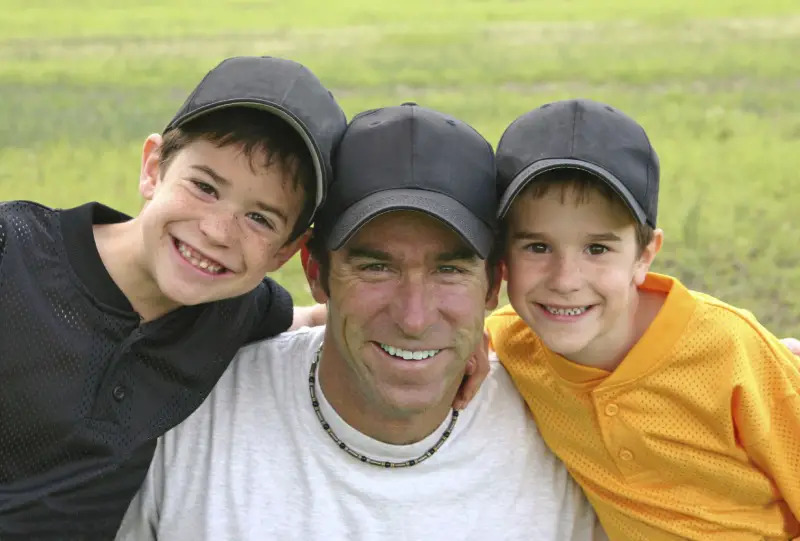 |
Sometimes, it’s the coaches and not the kids who need a lesson in good sportsmanship. One therapist offers tips if you’re concerned about your child’s little league coach’s behavior and dugout demeanor.
“Safe? Safe? What do you mean he’s SAFE?” Coach Brian erupted from the dugout. He threw his clipboard at the 16 year-old ump, then turned his attention to 1st base: “You’re out!” he screamed at the 10 year-old standing there.
Everything came a crashing halt. Kids horsing around in the dugouts stopped and stared, parents who had been chatting fell silent, and the young umpire looked desperately at 1st base. After a beat, the parent standing there quietly said “Out. Sorry, kid, you’re out.” The runner in question walked angrily off the field, while the 1st baseman, the coach’s son, looked like he’d been kicked in the teeth.
None of the other parents said anything to Coach Brian either then or later. There were mumbled conversations for the rest of the game, but no one seemed to know how to handle the situation.
Sports are as much about skill-building as they are about character-building, so what’s a parent to do when faced with a coach whose behavior is at best unsportsmanlike and, at worst, harmful?
John Hawley, President of the Jesse A. Collyer Jr.Youth Sports Leagues in Ossining, NY notes that all his volunteer coaches take a course in coaching and are asked to sign a code of conduct prohibiting exactly this type of behavior. “It’s pretty common for amateur sports organizations to take these precautions nowadays. Because sure, we had problems in the past.”
But almost everyone, it seems, has a negative story about a coach. Allison Squillace, LCSW, a child and family therapist based in Great Neck, Long Island observes that even now there’s a higher tolerance for bullying-type behavior in sports: “There’s still a sense that it toughens up children, making them stronger and thus better players.”
But there’s never an excuse for shaming or humiliating a child, or for displaying out of control and unsportsmanlike behavior.
It’s important for parents to speak up constructively in these situations. While there are those parents who constantly meddle, there definitely is a time and a place for judicious intervention. Hawley says he encourages parents to bring any coaching issues to his attention: “With over 30 teams in our league, I can’t personally observe each and every game. I rely on parents to keep me informed.”
Most coaches you encounter will be enthusiastic and positive, involved because they love the game and want to share it with their children and other kids. But trust your gut—if you think something’s wrong, speak up. Don’t implicitly condone bad behavior by your silence.
Here’s a five-step plan suggested by Squillace for handling such situations:
- Get off on the right foot: Parents need to be involved and visible from the start. At the beginning of the season, introduce yourself to the coach. If you have the time, see if there’s anything you can do to help the team—maybe you can buy a case of water, or bring healthy snacks to a game. Later on, check in with the coach to see how the season is progressing—perhaps ask for tips on how you can help your child’s skill development. Fostering a positive relationship with your child’s coach at the start will help you get a sense of their personality and make it easier for you approach them later should any issues arise.
- Strike a balance between helicoptering and under-involvement: Many parents stay on the sidelines for fear of interfering or embarrassing their child, but it’s vital to find the balance between being pushy and being under-involved. Some interaction with your child’s coach is always in order.
- Talk to other parents: If you think you’re observing behavior that’s bullying or inappropriate, do a reality check by talking to other parents. Are they seeing the same thing you are? Do they know if this coach has a history of such behavior, or if someone has spoken to him or her about it in the past? However, while feedback from other parents can be helpful, don’t let their response dissuade you from speaking up if something doesn’t feel right.
- Talk to your child: Find out how your child perceives the situation. Ask open-ended questions, like “Tell me what happened” or “How did you feel when Coach yelled at the umpire?” But don’t rush in to take over. Children will be faced with similar situations in the future, so this could be an opportunity to introduce self-advocacy skills. Pay attention and get as full a story as possible. Validate your child’s experience if appropriate, and let them know that it is never okay to be humiliated or shamed.
- Approaching the Coach: If you feel that speaking to coach is the best solution, be calm and polite. Approach the coach in a positive, friendly manner with another parent or two if possible. There is power in numbers, but you never want to seem like you’re ganging up on a coach. If talking to the coach doesn’t work, then ask for a meeting with the head of the organization.
Remember that unless they are working within the school system, the majority of coaches are volunteers. Be respectful and considerate—coaches often spend many hours planning line-ups, schedules and practices, giving up their weekends and evenings throughout the season. Keeping that in mind will help make your conversation cordial and productive.
Caroline Ranald Curvan is a freelance writer based in Ossining, NY. She has two children on various Little League, swimming, and diving teams.












